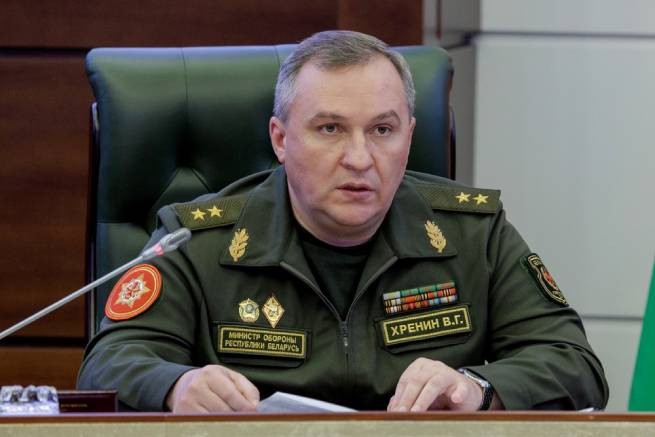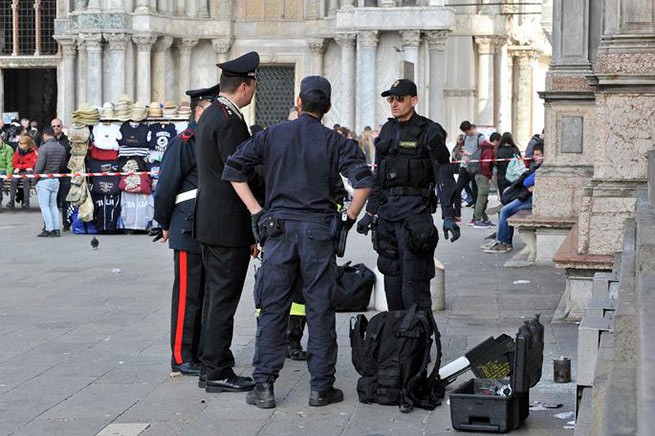The Czech Republic claims to have uncovered a Russian bribery scheme for European Union politicians and the spread of Russian propaganda in Europe. German deputies also came into the spotlight.
Simultaneously with the statements of the Czech authorities, details of the scheme were published on March 27 by Der Spiegel and the Czech newspaper Denik N., and the German authorities expressed concern about revelations from Prague of a “Russian-funded network of influence.”
At the center of the scandal is a completely ordinary, unremarkable news website Voice of Europe (voiceofeurope.com.). Now it no longer opens, but until today it offered regular news – reprints from other media about the economy, politics, and various topics not related to politics.
However, this is only at first glance. Taking a closer look at the publication, journalists from the weekly Der Spiegel noticed that the news on the site often looks like it was written by artificial intelligence, the source code of the page was created using Cyrillic, and the page is searched in Russian. It was also noteworthy that on the site one could find many interviews with European politicians, primarily from right-wing populist parties.
The Czech security and information service BIS managed to find out that this is not just about an Internet site, but about the activities of an influence network financed from Russia in the Czech Republic. According to Der Spiegel, several other European intelligence services provided assistance to the Czechs. At the center of this network, the Czech authorities are sure, was the former leader of the pro-Russian Ukrainian party “Opposition Platform-For Life” and Vladimir Putin’s godfather, Viktor Medvedchuk. In Ukraine, he was accused of treason, but during the exchange of prisoners of war he was allowed to leave for Russia; on March 27, the Czech authorities imposed personal sanctions against him. According to the Czech intelligence services, Medvedchuk is behind operations to spread the influence of the Russian Federation in Europe through the media and politicians. Prime Minister Petr Fiala said on March 27, quotes Deutsche Welle: “We were able to detect the activity of an influence network financed from Russia in the Czech Republic.”
Fiala said the purpose of this network is attempts to influence the policies of European countries to please the Kremlin. The Czech authorities consider Ukrainian producer Artem Marchevsky, former general producer of the 112 Ukraine news channel, to be Medvedchuk’s assistant and the actual manager of the site. Sanctions have also been imposed against him. On the sanctions list approvedthat Medvedchuk used Voice of Europe and Marchevsky “in many member countries EU to finance cooperation with journalists and for hidden financial support of individual candidates in elections to the European Parliament in order to support the foreign policy interests of the Russian Federation.”
What is the Voice of Europe network accused of? The website voiceofeurope.com regularly published calls from European politicians to stop aid to Ukraine. Also, in addition to publications, various seminars and conferences were held under the auspices of the site, the participants of which disseminated pro-Russian positions, the director of the Prague Institute of International Relations, Jan Kovar, noted in a conversation with journalists of the publication. Some of those who published on the site or gave interviews, claims the Czech newspaper Denik N, were paid money for this, in some cases commensurate with the costs of campaigning for the elections to the European Parliament, which will be held in June.
According to Der Spiegel, the money was transferred in cash during personal meetings in Prague or using cryptocurrency. The Czech newspaper Denik N reports that the pool of recipients included politicians from six countries – Germany, Belgium, France, Hungary, the Netherlands and Poland. The Czech publication cites sources in the Czech Ministry of Foreign Affairs.
Czech journalists do not name the specific names of the recipients of the money, but note that, in particular, the site published interviews with politicians of the right-wing populist German party Alternative for Germany (AfD) – Member of the European Parliament Maximilian Krah, as well as Member of the Bundestag Petr Bystron ( Petr Bystron). Kra, at least in the past, maintained contact with Medvedchuk – was invited to his birthday and visited him in Kyiv after being accused of treason and being placed under house arrest.
The allegations regarding the bribery of European politicians are currently not supported by evidence of the transfer of money. It is also not clear in which cases politicians were rewarded and in which they were not. But the fact that undeclared financial assets were involved in this case is indirectly confirmed by the facts of searches in Poland, where one of the co-owners of the site was located.
According to the dpa news agency, on March 28, during a search in Warsaw and the city of Tychy, employees of the Polish intelligence service ABW confiscated 48,500 euros and 36,000 dollars. The secret service officers connected the searches both directly with the Voice of Europe case and with accusations against a Polish citizen of espionage for Russia.
Meanwhile, Maximilian Kra, when asked by Der Spiegel, rejected suspicions of bribery, saying that “of course, he did not receive money either for himself or for the party,” and allegedly paid for the hotel in Prague on his own. Bystron did not respond to a request from Der Spiegel journalists. Kra and Bystron are ranked first and second on the AfD list for the European Parliament elections.
The exposure of the Moscow-funded Voice of Europe website indicates Russia's “illegal influence” on the European Parliament, the German government said in response to the Prague decision and to press publications. “The network used politicians from several European countries and placed significant funds at their disposal,” a spokesman for the German Interior Ministry said in a statement.
This information was confirmed on March 28 by Belgian Prime Minister Alexander De Cros. “For example, it turned out that Russia approached members of the European Parliament and also paid for the promotion of Russian propaganda here,” he said during a debate in the Belgian parliament. He did not name the names of the deputies, but noted that this week “close cooperation has been established” between the Belgian and Czech intelligence services to destroy the Russian propaganda network, Politico quotes.
Meanwhile, the press service of the European Parliament told DW, the EP, together with other EU institutions, is studying the information provided by the Czech authorities. The European Parliament also recalled the ban on sanctioned media from using parliamentary audio and video platforms and being on its territory. Earlier, on February 8, the European Parliament already adopted a resolution in connection with Russian influence in the EU.
*Pool (from the English pool – “common pot”) is a form of association, agreement between entrepreneurs, usually of a temporary nature, in which the profit of the pool participants goes to the common fund and is distributed among them according to pre-established ratios.







More Stories
Belarus is ready to fight, having adopted a new doctrine
IMF: "Huge US debt poses serious risk to global economy"
Teenager arrested in Paris: he wanted to “die as a martyr” at the Olympic Games (video)